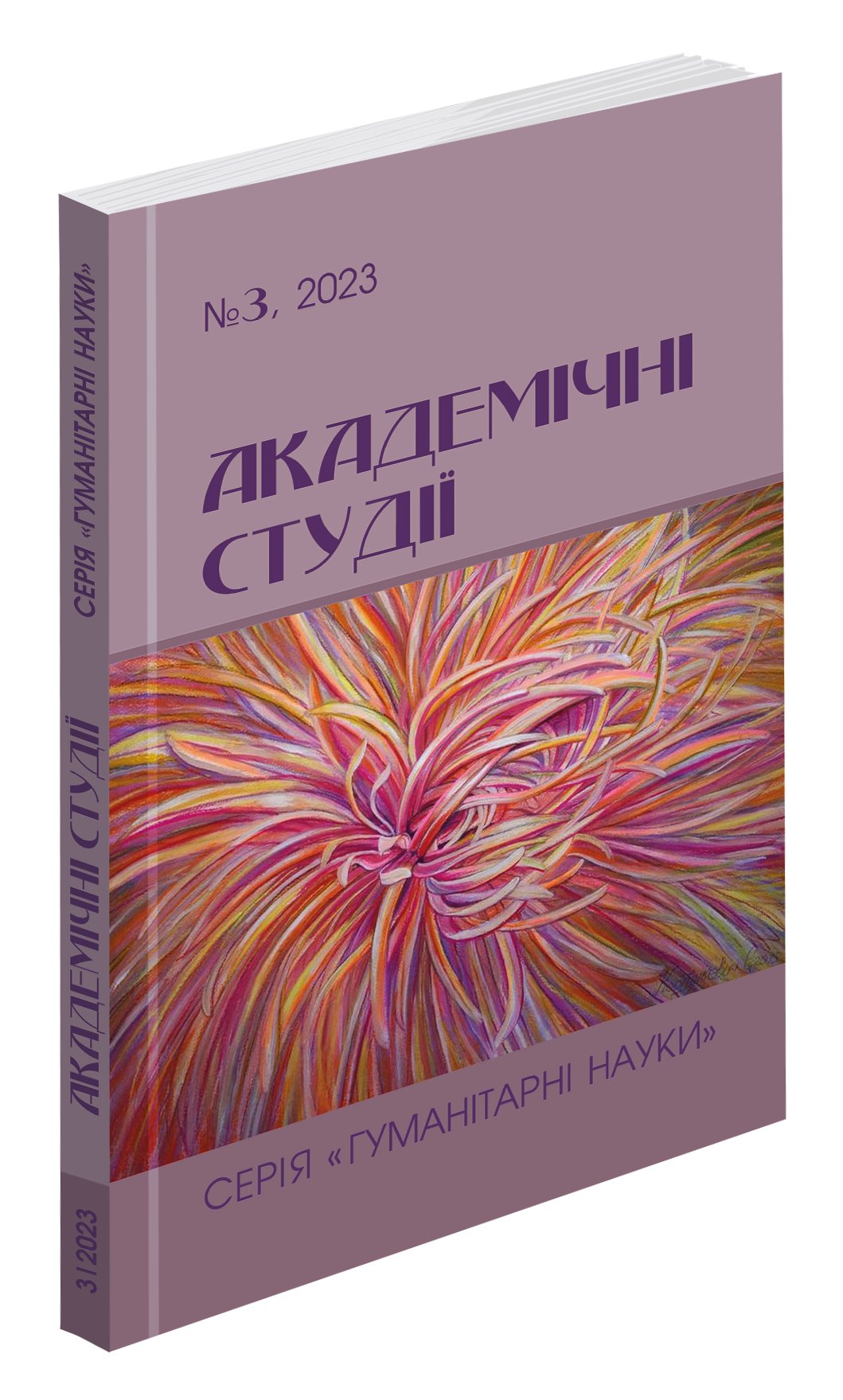Abstract
The paper focuses on the peculiarities of the use of postmodern techniques of interpretation of Shakespeare's work in the discourse of modern theatrical art. In particular, the specifics of the deployment of the conceptual metaphor of war in the production of “Troil and Cressida” by the British director J. Banatvala is being considered. The analysis shows the effectiveness of the postmodern director's use of deconstruction techniques, which generate processes of meaning-making at different levels of the text perception: thematiccontent, compositional, figurative and symbolic, stylistic. The author's concept of a theatrical performance is in line with the ideas of J. Derrida about the denial of the existence of a single source of artistic meaning and the relocation of the meaning-making center within an aesthetic object. The concept of a centered structure, realized in the experience of stage interpretation of classical material has led to transformations of the play's content and formal elements. The director resorts to decentering of Shakespeare's text structure. The concept of the absence of a center, the understanding of structure as an endless play of differences within finite limits that cannot be centered into a closed whole. This concept allows us to emphasize the polysemantic nature of any socio-historical and ideological phenomenon. War in the stage interpretation of a postmodern director acquires an ontological status, acts as a universal reality of existence, and has a worldview nature. As a conceptual metaphor war is being actualized in the postmodernist experiment to explain complex abstract concepts: the end of history, the human crisis, and the current state of understanding of human relations. At the same time, deconstruction acts as a means of creating an artistic world and facilitates the transmission of philosophical and specific historical artistic senses.
References
Банатвала Д. Британський режисер Джонатан Банатвала: «Шекспір попереджав політиків про ціну їхніх танків і бомб» / [інтерв’ю вела] К. Константинова. Дзеркало тижня. 2016. 16-22 січня. С. 14.
Баррі Г. «Бути чи не бути» Ернста Любича: Гамлет, Гітлер і Голокост. Шекспірівський дискурс. Запоріжжя : КПУ, 2010. Вип. 1. С. 248-261.
Дерріда Ж. Структура, знак і гра у дискурсі гуманітарних наук. Антологія світової літературно-критичної думки ХХ ст. Львів : Літопис, 2001. С. 617-641.
Колесник О. С. Шекспір та Україна: від міфопоетики до постмодерну. Трансформаційні процеси в освіті і культурі : зб. матеріалів Міжн. наук.-творч. конф., Одеса, Київ, Варшава, 24-25 квітня 2013 р. Київ : НАКККіМ, 2013. С. 102-104.
Науменко Н. В. Гамлетівські мотиви у слов’яномовній драматургії ХХ століття. Компаративні дослідження слов’янських мов і літератур : зб. наук. праць. Вип. 31. Київ : Освіта України, 2016. С. 274-282.
Пронкевич О. В. Шекспір і популярна культура. Шекспірівський дискурс. Запоріжжя : КПУ, 2010. Вип. 1. С. 262-271.
Шекспір В. Троїл і Крессіда. Зібрання творів у 6 томах. Том 4. Київ : Дніпро, 1985. С. 331-436.
Bevington D. “Is This the Promised End?” Death and Dying in King Lear. Вloom’s Modern Critical Interpretations: King Lear. N.Y. : Вloom’s Literary Criticism, 2010. P. 53-66.
Kennedy D. Afterword: Shakespearean Orientalism. In: Foreign Shakespeare: Contemporary Performance. Ed. Dennis Kennedy. Cambridge University Press, 1993, P. 290-303.
Lakoff G., Johnson М. Metaphors We Live By. Chicago: University of Chicago Press. 1980. 242 р.

